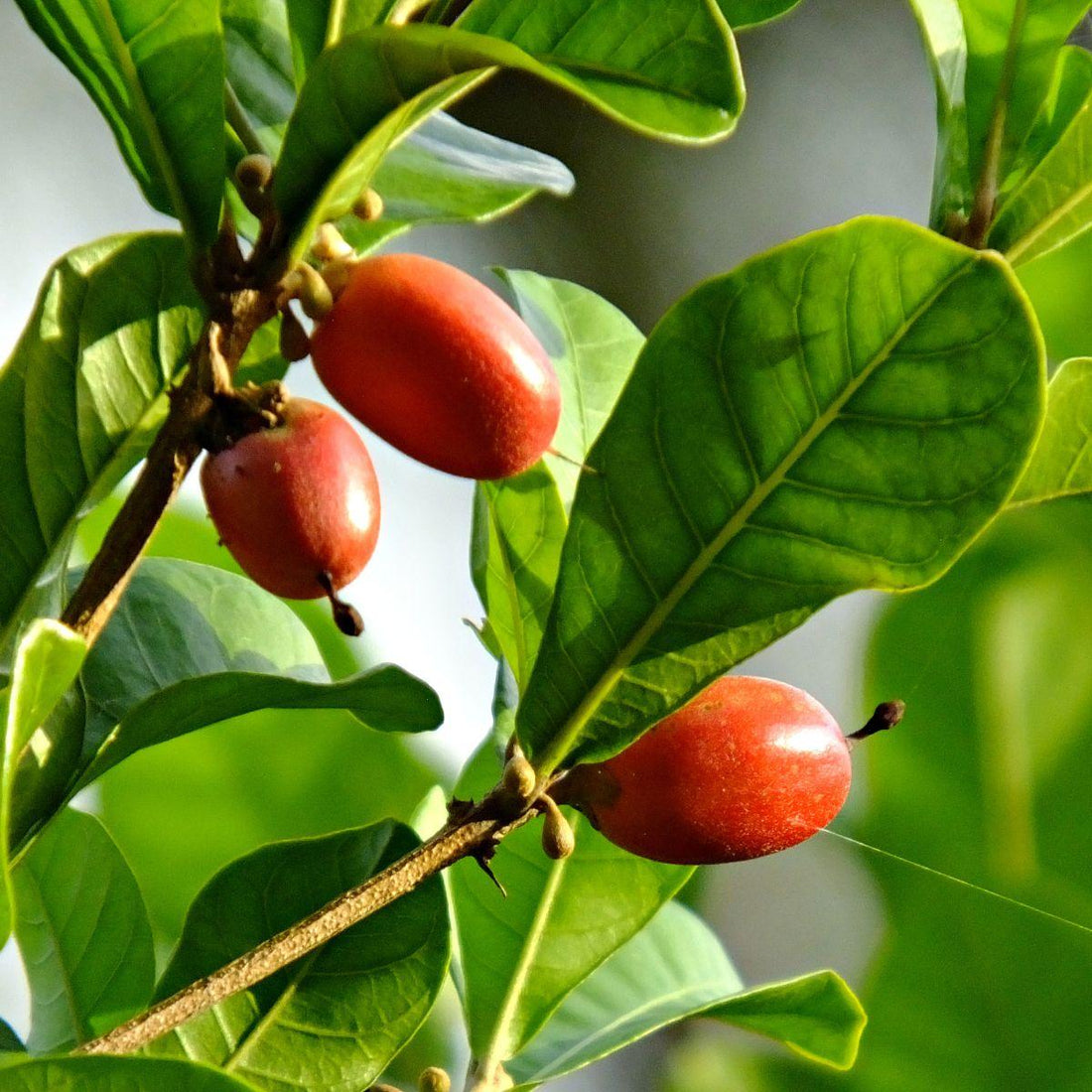
The Miracle Berry: That Tricks Your Taste Buds
Share
Picture this: you pop a small red berry in your mouth, let it coat your tongue for a minute, and suddenly everything sour tastes amazingly sweet. Sounds like something from Willy Wonka's factory, doesn't it? But this isn't fiction – it's the miracle berry (Synsepalum dulcificum), and it's absolutely real.
The Science Behind the Magic
Now, you might be wondering how on earth this works. The secret lies in a protein called miraculin (yes, that's its actual scientific name!). When this clever little protein binds to your taste buds, it acts like a tiny taste bud transformer. Under normal conditions, it doesn't do much, but when you eat something acidic, it changes shape and triggers your sweet taste receptors. The result? Your brain thinks you're eating something sweet instead of sour. Pretty mind-blowing, right?

From West African Tradition to Modern Marvel
The miracle berry isn't some new laboratory creation – it's been known to West African communities for centuries. Local people would pop a berry before eating sour fruits and foods, making their meals more enjoyable. Imagine being the first person to discover this effect – they must have thought they were dreaming!
Beyond Party Tricks: Serious Applications
While "flavour tripping" parties (yes, that's what people call miracle berry tasting events) are great fun, this fascinating fruit has some serious potential uses:
Cancer Support: For patients undergoing chemotherapy, food often tastes metallic or unpleasant. The miracle berry could help make meals enjoyable again, ensuring better nutrition during treatment.
Sugar Reduction: Imagine being able to reduce sugar in foods while maintaining sweetness. Food companies are exploring this potential, and it could be a game-changer for diabetics and anyone watching their sugar intake.
The Miracle Berry Experience
Want to know what it's like to try miracle berries? Here's what you can expect: The berry itself doesn't taste like much – it's mildly sweet and a bit like a less flavourful cranberry. But once it works its magic, you're in for a treat. Lemons taste like lemonade, vinegar like apple juice, and even Guinness beer tastes like chocolate milk (seriously, people swear by this one!).
Growing Interest in the Food World
Chefs and food innovators are increasingly experimenting with miracle berries. Some restaurants have even hosted special "miracle berry menus" where every course is designed around the fruit's taste-altering properties. Imagine sipping on a super-sour cocktail that tastes perfectly sweet, or enjoying a tangy salad that tastes like it's been drizzled with honey!
Future Potential and Challenges
The miracle berry's journey from traditional West African fruit to potential game-changer in modern food science hasn't been without its hurdles. Regulatory approval, cultivation challenges, and preservation issues have all played their part in limiting its widespread adoption. But with growing interest in natural sugar alternatives and innovative food experiences, we might be seeing a lot more of this fascinating fruit in the future.
A Sweet Conclusion
The miracle berry shows us that sometimes the most extraordinary solutions to our modern food challenges might be found in nature's age-old wisdom. Whether you're a curious food enthusiast, someone looking to reduce sugar intake, or just someone who loves a bit of culinary magic, the miracle berry offers a unique glimpse into the amazing possibilities that exist in our natural world.
Isn't it amazing how a tiny berry from West Africa could potentially revolutionise how we think about taste, sweetness, and healthy eating? The next time someone tells you they've found a miracle solution, well... in this case, they might just be right!
With love from The Epicerie
